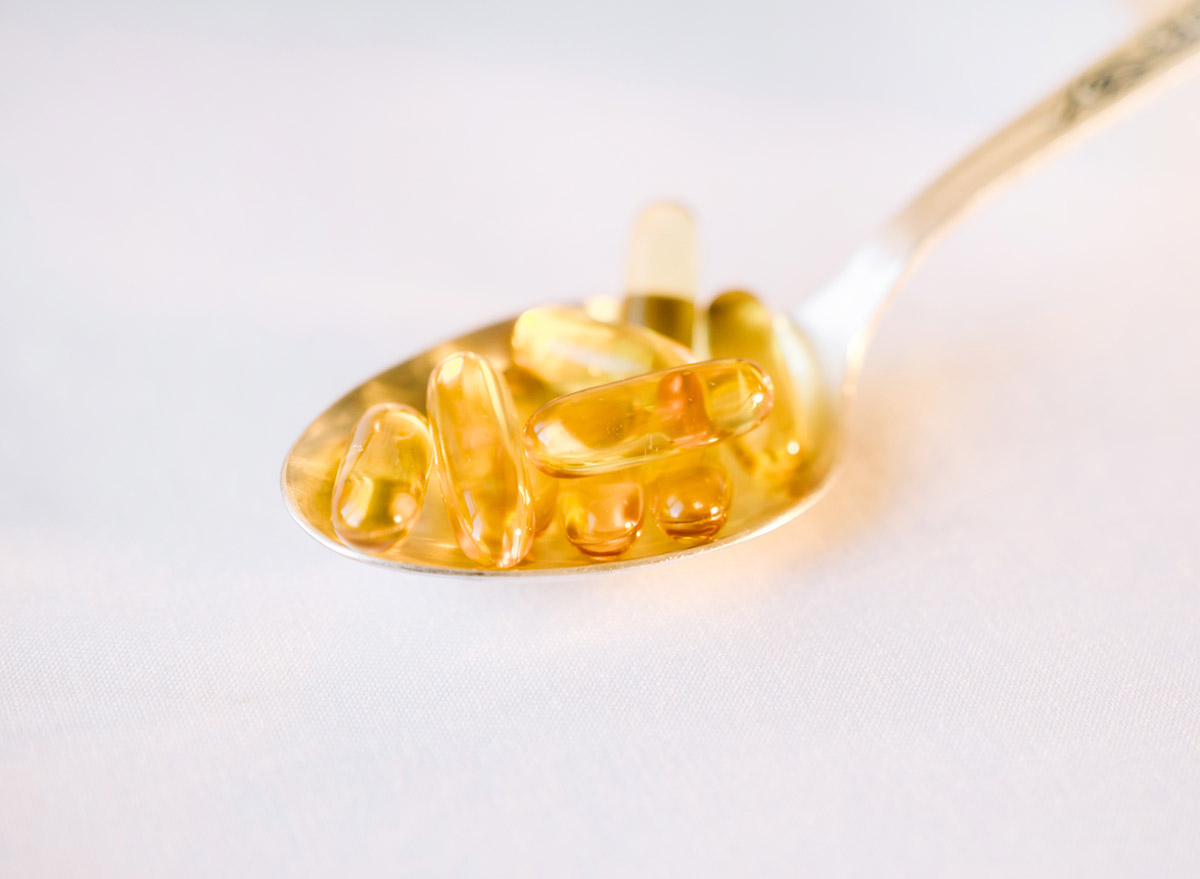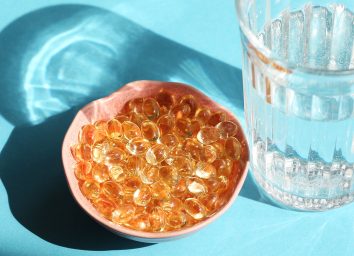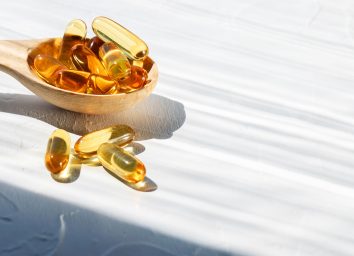The Two Best Supplements To Decrease Disease Risk As You Age, Says New Study

It likely isn’t news to you that making some healthy lifestyle changes can affect not only your disease risk, but also the longevity of your life. Creating healthy habits, eating a nutrient-rich diet, and even exercising are all a part of staying healthy and happy for as long as possible. And, according to a new review that was published by the BMJ, taking vitamin D and marine omega 3 fatty acid supplements can also decrease your autoimmune disease risk as you get older.
In this review, researchers evaluated 25,871 patients—12,786 men over the age of 50, and 13,085 women over the age of 55, all with a mixture of racial and ethnic backgrounds. They were split into groups of taking either a vitamin D supplement or a placebo, and an omega 3 fatty acid or a placebo, and evaluated the incidence of autoimmune disease for each participant over a median of 5.3 years.
The results stated that the group taking vitamin D supplement (either with or without omega 3 fatty acid supplementation along with it) saw a 22% reduction of autoimmune disease. Participants who took an omega-3 fatty acid saw a reduced rate of 15%. While the omega-3 fatty acid supplementation wasn’t as significant compared to vitamin D, both still had “larger effects” compared to the placebo groups.
How much supplementation is necessary?
Looking at the review, the vitamin D supplement group took 2,000 international units (IU) a day, which is equivalent to 50 micrograms. The recommended dietary allowance (RDA) for vitamin D is 15 micrograms for adults 70 and below, and 20 micrograms for adults that are older. Although this vitamin D supplement does exceed the RDA, the tolerable upper intake level—the maximum amount of a vitamin that you should take before risking serious side effects—is 100 micrograms, which is 4,000 IU.
For the omega 3 fatty acids, participants were given 1,000 milligrams (equivalent to one gram) a day. The RDA for omega-3’s is 1.6 grams a day for men and 1.1 grams per day for women, so the supplement just about fulfilled the needed amount of omega 3’s for a person in a day.
By taking these supplements daily, the groups saw a decreased risk of developing autoimmune diseases including rheumatoid arthritis, polymyalgia rheumatica, autoimmune thyroid disease, psoriasis, among others.
While taking a supplement can be a helpful way to get the necessary nutrients you need as you age, dietitians recommend first getting your daily vitamins from natural sources—like food, and in the case of vitamin D, sunshine. You can get some vitamin D from fatty fish, egg yolks, wild mushrooms, and fortified foods. Omega-3 fatty acids are even easier to obtain from foods like salmon, grass-fed beef, spinach, winter squash, and many more.
However, if you aren’t getting enough of these nutrients from your diet alone, it is imperative to talk to your doctor before incorporating any supplements into your routine, so be sure to ask a medical professional before making any changes to your daily supplementation.









